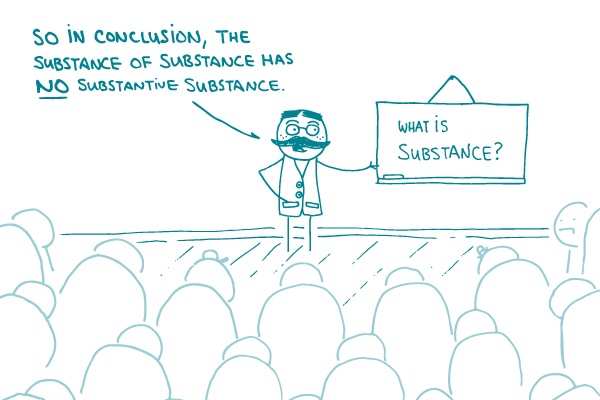
In this week’s edition of our “use simpler words” series, we’re talking about “substance.”
“Substance” is one of those vague words that may not need to be simplified as much as it needs to be clarified. After all, a substance is pretty much anything that takes up space. And do you know, dear readers, how many substances exist out there? We actually don’t either, but there must be a lot.
In our experience here at We ❤︎ Health Literacy headquarters, the word “substance” tends to pop up most when writing about 2 topics: environmental health and drug and alcohol use.
Consider these examples:
- Talk with your kids early and often about substance use.
- Studies show that contact with these substances can cause serious health problems.
What exactly are we talking about here? Alcohol? Drugs? Asbestos?
Here’s our advice: instead of leaving it at “substance,” tell us more about what the substance is. And if you can, just name it!
For example:
- Talk with your kids early and often about alcohol and drug use.
- Studies show that contact with these chemicals can cause serious health problems.
Simple, right?
Of course this method isn’t one-size-fits-all. Sometimes, “substance” really is the best word to describe, well, a substance. But try to be as specific as possible — so your readers don’t accidentally think you’re talking about, you know, polybrominated diphenylethers. (Granted, that’s not a very likely scenario. But you get it.)
The bottom line: When you can, skip “substance” and just name what you’re talking about.
Browse recent posts